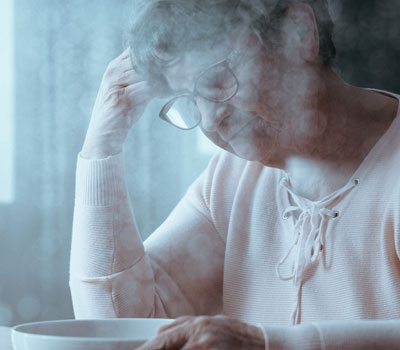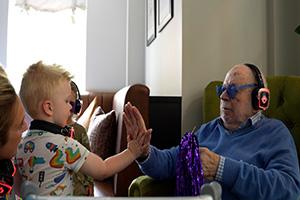Eating Disorders in the Elderly – Are we taking the threat seriously?
Challenged to conjure the image of a person with an eating disorder, who are you going to picture?
Someone female perhaps? Skeletal? And, most likely…an adolescent or very young adult.
Of course, no-one can accuse you of being wrong with that assumption.
Indeed, eating disorders have an extremely high prevalence of onset among those of school-age, and slightly above.
But here’s where we’re in danger of being blinded by social perceptions and perceived ‘norms’.
In fact, eating disorders can – and do – affect those as young as six, and those well into their pensionable years.
Wednesday’s Child, a not for profit organisation established to support those experiencing eating disorders, has found an increasing number of enquiries from elder adults – and their concerned family or friends.
“Despite the perception of eating disorders as something predominantly experienced by young females, we know that this devastating disease can manifest in a boy, girl, man or woman, at any age in their life,” says Wednesday’s Child’s founder, Debbie Watson.
“Often, issues might develop in times of stress, crisis, or as a result of changing lifestyle circumstances which impact the way a person feels able to cope, or how they view their body.
“Contact we receive suggests it is increasingly the case that losing a long-term spouse, having to move into a residential home, or losing confidence through a health episode, can indeed be triggers for an eating disorder to develop.”
While these may be obvious scenarios of the ‘perfect storm’ which threatens someone’s mental health, evidence suggests that even health professionals can be in danger of spotting the early onset of an eating disorder.
“We hear experiences of where elder people have reached out to a GP and been told ‘not to worry’ and that ‘they’re appetite is naturally going to fade as they get older’,” adds Ms Watson.
“This is a devastating reaction to hear for someone seeking help at a very low point in their life.
“It’s also worth remembering that eating disorders don’t typically have a ‘look’ so we cannot assume that someone has or hasn’t got an issue, only when they are in a smaller body. A person could just  as easily be maintaining a relatively normal weight, but developing unhealthy behaviours about their food, or in a potentially critical cycle of restricting and purging.”
as easily be maintaining a relatively normal weight, but developing unhealthy behaviours about their food, or in a potentially critical cycle of restricting and purging.”
Worryingly, a recent exploration by the BBC’s Victoria Derbyshire programme was able to discover that some of the country’s specific eating disorder clinics have a cut-off age of 65.
This potentially creates a gap in specialist provision for those in the age band who are urgently in need of support.
Clarifying that body image is indeed an issue for the elder population, a recent survey by Gransnet found 77% of their respondents were unhappy with their weight, and that of those reporting ‘eating issues’, only 40% had sought help. Most who had failed to do so, said it had been as a result of ‘embarrassment’.
With stigma still unfortunately attached to this deathly illness, it’s imperative we all take more care about appraising the likelihood of someone’s vulnerability to an eating disorder.
For information about support for sufferers, or training for health and care professionals in this area, contact Wednesday’s Child on hello@wednesdayschild.co.uk





